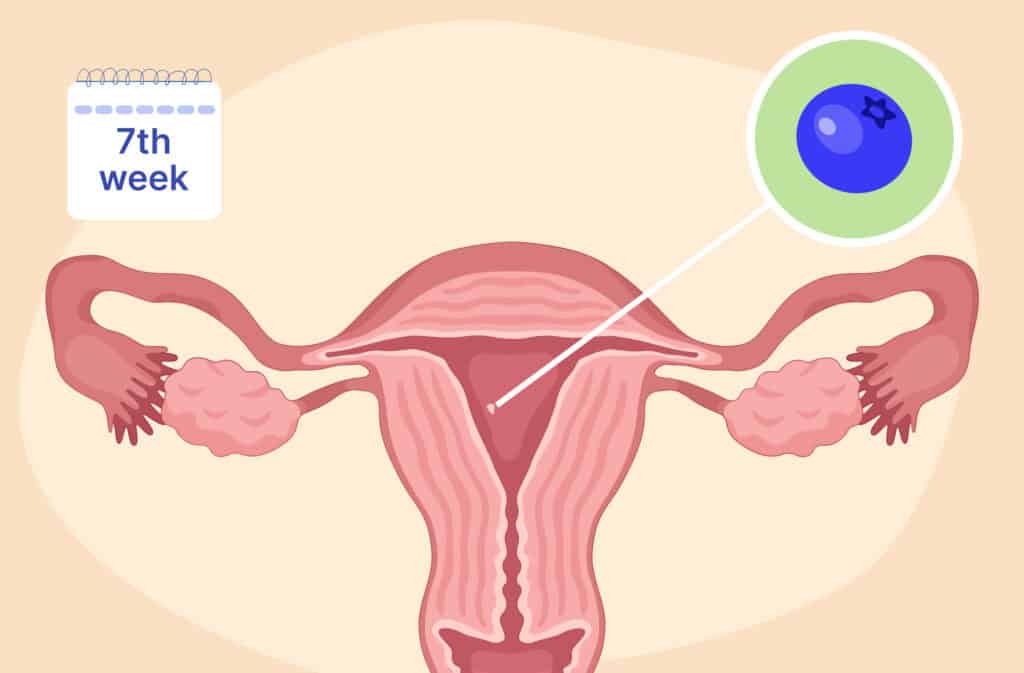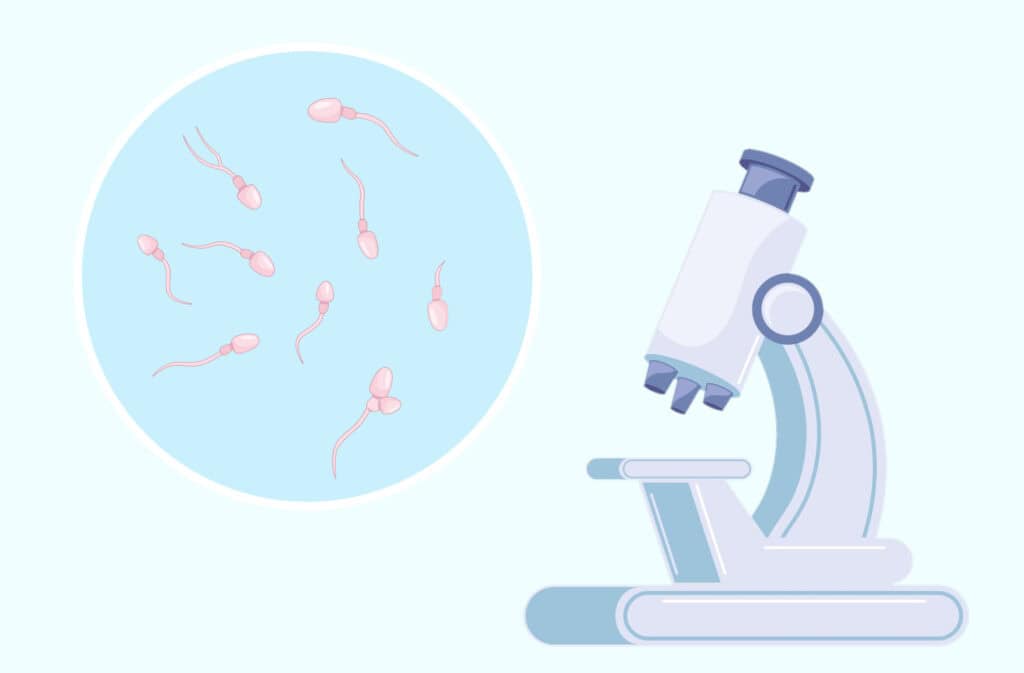Femia > Health Library > Pregnancy > Pregnancy health > Premature baby development week by week: What to expect from birth onward
Premature baby development week by week: What to expect from birth onward

- Updated Feb 10, 2025
- Published
CRAFTED BY HUMAN
Crafted by human At Femia, we provide accurate and up-to-date information at every stage of your journey, from trying to conceive, pregnancy and postnatal support. All content is created by a real person based on in-depth research and own professional experience. Femia ensures that you will receive expert advice, strict accuracy and a personalized approach from our authors/medical experts. Learn more about our editorial policy.
FACT CHECKED
Fact checked At Femia Health, we maintain the highest standards of editorial excellence in delivering content focused on helping you conceive, guiding you through pregnancy, and supporting you postpartum. Explore our content review principles to learn how we ensure the accuracy and quality of our health and lifestyle tips for every stage of your journey.
Premature baby development differs from full-term babies:
- Use corrected age (subtracting weeks born early) to assess milestones. Key milestones include physical, cognitive, and social skills.
- Early weeks focus on the basics: helping your little one breathe, eat, and grow stronger.
- Development pace varies, with earlier births facing more challenges. Support your preemie’s growth through skin-to-skin contact, tummy time, and interactive play.
Babies born three or more weeks earlier than the expected due date are called “premature.” With a regular pregnancy being 39-40 weeks, babies born under 37 weeks and earlier (preemies) haven’t had enough time to develop in a womb as much as they should have grown before being born.
An early birth may increase the risk of breathing problems, feeding difficulties, cerebral palsy, developmental delays, vision and hearing problems.
Parents of a premature baby should carefully track development milestones that may signal that a baby might need extra help. Throughout your child’s early life, you should know what babies should do by a specific age so you can take proactive measures if something feels off.
Track your symptoms with Femia and get tailored
health advice right on your phone
Understanding premature baby development
Premature babies often reach development milestones later than babies born at 39 and 40 weeks. The earlier a baby is born, the higher the risk of deviations. These milestones include:
- Physical abilities (sitting, crawling, and walking).
- Cognitive skills (speech and problem-solving).
Premature babies are also more vulnerable to health complications that later may also affect their development. For example, health issues like respiratory distress, infections, and feeding difficulties are common among premature babies and may contribute to slower growth and delayed milestones. That is because their organs, especially the lungs, brain, and digestive system, are not fully developed at birth.
Each baby, including premature ones, develops at their own pace. While some catch up to their peers quickly, others may take longer, and that’s okay. There are other factors that affect how quickly preemies will develop, and include the following:
- Speed and level of neonatal care they receive.
- Their overall environment (emotional and physical support from parents).
Corrected age concept and its importance
Healthcare providers use the compact of “corrected age” to better evaluate and understand the development of preemies. It is also called “adjusted age” and is calculated by subtracting the number of weeks the baby was born early from their actual chronological age.
Lets say a baby was born 8 weeks earlier than the due date and now is 6 months (24 weeks). Their corrected age will be 4 months (16 weeks).
This concept is used to get a more accurate reflection of where the baby should be in terms of developmental milestones to not stress out parents and force a baby to immediately catch up with peers.
Aside from that, the adjusted age concept also affects the following:
- Milestone tracking: helps parents and doctors set realistic expectations on what milestones a baby should reach and when.
- Health and developmental assessments: allows healthcare providers accurately interpret various assessments, including growth charts, neurological evaluations, and developmental screenings.
👉Find out more: Late decelerations during labor: What you need to know
Premature baby development week-by-week guide
Week 1-4: Adapting to life outside the womb
After being born, a premature baby will spend some time in the NICU, and only then can you go home. So, during the first few weeks, babies start adapting to life outside the womb. So parents and caregivers should focus on supporting and monitoring the baby’s basic functions, including:
- Respiratory system support;
- Ability to suck and swallow or tube feeding;
- Regulate temperature either in incubators or using radiant warmers;
- Vitals like heart rate and oxygen levels;
- Weight gain mimics the first milestones of a baby’s development.
Week 5-8: Improvements in feeding and sensory awareness
As the baby grows, parents and caregivers may expect visible improvements in development, especially in feeding and sensory awareness.
Babies with a feeding tube start to develop their sucking and swallowing skills so they can begin breastfeeding or drinking from a bottle. As a result, weight gain becomes more stable, although it should be closely monitored. A baby also starts to grow in length, skin becomes less translucent, and overall look improves.
During 5-8 weeks, preemies also start to show early signs of sensory awareness so they can respond to soft sounds and gentle touch. You may notice that eye movements increase, but vision remains limited.
Some babies may still require respiratory support, some being to wean off oxygen and doctor’s focus continues to be on minimizing involvement, reducing stress and nurturing environment for ongoing development.
Week 9-12: Motor skills and social interaction
At this time, premature babies often show significant progress in motor skills and start interacting with the environment more.
Parents may notice babies trying to grasp a finger or a small object, with movements becoming more confident and coordinated. There will be an increasing awareness and interest in the surroundings, so preemies may start following objects with their eyes and their focus sharpness.
Social interaction can also start progressing. For example, babies begin making eye contact and even show early attempts at smiling. While these smiles may still be reflexive, they signify the baby’s ability to engage with the world.
👉Find out more: Why am I gaining weight so fast during first trimester of pregnancy?
Week 13-16 and beyond: Growth & cognitive development
As the baby grows, the same happens to the rate of their development. More noticeable physical and cognitive milestones can be noticed.
- Weight gain and physical development continue steadily.
- Babies start tracking movement more consistently, and they show a greater interest in exploring their environment.They may also start recognizing familiar faces and show emotions when those people appear.
- As a result, smiling becomes more intentional, and it acts as a key milestone.
- Some premature babies may still require specialized care, but many start to transition out of the NICU as they become more independent.
Important note: This is simply an educational guide. Every baby is unique, and their needs can be quite different depending on when they decide to make their grand entrance into the world.
Babies born before 32 weeks often require the most specialized care. The good news is, with each week that passes in pregnancy after 32 weeks, a baby’s chances of needing intensive care if born early get a little bit better.
Premature baby milestones chart
The data below is based on adjusted age:
| Neonatal age | Development milestones |
|---|---|
| 1-2 months | Cries as a way to communicate (when hungry, wet), follows objects with eyes, lifts head, and starts smiling in response to others. |
| 3-4 months | Laughing and squealing, reaching for toys, exploring with hands and mouth, starts to cooing (sounds like ooh, aah). |
| 5-6 months | Babbling (sounds like ga, ba, da), rolls over, sits with support, shows interest in toys, and starts developing more facial expressions. |
| 7-9 months | Starts saying up to three words (mama, dada), sits with support, and engages in social play. |
| 10-12 months | Communicates by pointing, pulls up to stand, understands simple words, shows preference in certain people and toys. |
Please remember that all preemies develop differently, so if your baby isn’t reaching milestones, it’s best to consult a healthcare provider.
👉Find out more: Third-trimester nausea: Why it returned and how to find relief
Challenges and considerations
Premature babies often face a unique set of developmental challenges due to their early birth. It’s important to be aware of potential delays and how to identify them to proactively seek medical help:
- Identifying developmental delays: preemies may experience delays in rolling over, sitting up, or walking. Monitor signs of difficulties with motor skills, speech, and social interactions. Look for deviations from adjusted age developmental timelines.
- When to seek medical advice: if you notice any signs of developmental delays or you think your baby significantly fails behind expected milestones, consult your pediatrician. Proactive medical help and consultation can help accurately identify delays and craft a plan for addressing them.
- Supporting your baby’s development: early parental intervention is key in supporting a premature baby’s development. You want to engage with early intervention programs offered by therapists. Programs may include physical therapy, occupational therapy, and speech therapy, depending on the baby’s developmental delays.
👉Find out more: Is sperm good for the baby during pregnancy? Understanding its impact and safety
Milestones for specific gestational ages
26 weeks pregnant born
At this time, a baby is about 2 pounds and 9 inches long when measured from head to bottom. But preemies are often small for their age. When born at 26 weeks, a baby’s main job is to grow, gain weight, sleep, and become medically stable.
Such babies are called micro-preemies, and they often have apnoea – the breath-triggering part of your baby’s brain hasn’t fully developed yet, so babies have pauses between breaths.
Even though ears and hearing structures are already formed, babies may be sensitive to external sounds and notice your voice but with no response. Babies often need a feeding tube when born at 26 weeks to gain weight as they usually don’t have sucking and swallowing skills yet – they outgrow that over time.
Skin is also fragile and highly sensitive, so your baby might get stressed if touched or handled so nurses often encourage parents to ‘comfort hold’ the baby but not stroke them.
29 week preemie
Babies born between 29 and 30 weeks will still require a NICU stay, but their organs are much more developed compared to those born earlier. At this time babies weigh around 3 pounds and are about 17 inches long.
Those preemies also have more fat stored under their skin, so they look healthier. Their eyes and ears work but are sensitive, so loud noises and bright lights can make them uncomfortable.
During these weeks, babies can also control their body temperature, and their stomach is maturing so they can get ready for milk digestion. However, sucking skills aren’t developed, so they will be fed through a tube.
31 week preemie
Baby born 31 weeks pregnant is around 18-19 inches long and weighs about 4 pounds. That’s almost the size and weight of a full-term baby, but there will be some differences to note.
Because of the increased body fat, babies born during these weeks start to look plump and may control stable body temperature without the help of an incubator. They can use all five senses to learn about their environment but sometimes still get uncomfortable with bright lights and loud noises.
Preemies born at 31 and 32 weeks will also need a NICU stay, and they have to achieve several milestones for most NICUs to safely discharge them. These include:
- Drink milk by breast or bottle without a tube.
- Keep a normal body temperature without the need for warming devices.
- Steadily gain weight.
👉Find out more: Third-trimester nausea: Why it returned and how to find relief
How to help support a premature baby’s development
Caring for a premature baby requires special attention from parents and caregivers, so here are some practical tips to help achieve premature baby milestones:
Encourage physical growth
- Skin-to-skin contact (Kangaroo Care): hold your baby close to your skin as it helps regulate their heart rate, breathing, and sleep patterns.
- Tummy time: once your baby is medically stable and strong enough, start practicing supervised tummy time 1-3 times a day. Placing a baby belly-down on your chest or across your lap for a few minutes as a start. This practice can help strengthen their neck, shoulders, and core muscles.
- Gentle massage: this can stimulate muscle development and improve circulation. Start with gentle strokes, and make sure your hands are warm as your skin is still sensitive. This physical activity also promotes relaxation and bonding, which positively affects overall development.
Promote cognitive growth
- Interactive play: start encouraging a baby with simple, engaging toys like soft blocks. The goal is for a baby to track objects with their eyes or grasp toys, as it helps aid in sensory and motor skill development.
- Reading and singing: even though infants don’t understand words, speaking to them, reading aloud, and signing helps them build auditory skills and encourages language development over time. This also promotes bonding and has a calming effect.
- Responsive communication: babies will start to coo, cry, and show facial expressions, so your job here will be to respond to their new skills. This interaction helps build their emotional and cognitive growth and helps them understand cause and effect.
👉Find out more: Understanding postpartum dizziness: Causes, duration and when to seek help
Bonding activities
- Eye contact: making eye contact during cuddling, playing, feeding, and soothing helps build a strong emotional connection that will support their emotional development skills.
- Comforting touch: gently holding a baby’s hand or any other physical contact can be incredibly soothing and beneficial for a baby’s emotional skills.
- Routine and familiarity: try establishing a daily routine with feeding, sleeping, and playing, as it helps babies feel more secure, makes you predictable, and positively affects their emotional well-being.
Ensure proper nutrition and care
- Breastfeeding or bottle-feeding: breast milk is preferred because it contains essential nutrients and antibodies essential for a premature baby. If breastfeeding is challenging, consult a location specialist or consider bottle feeding. In that case you need to ensure the formula is appropriate for your baby’s needs, as advised by your pediatrician.
- Health check-ups: it’s crucial to keep up with all medical appointments recommended by a pediatrician to monitor your baby’s growth, development, and any specific needs related to their prematurity.
- Proper sleep environment: ensure your baby sleeps on their back in a safe sleep environment to reduce the risk of Sudden Infant Death Syndrome (SIDS). It’s recommended to have a firm mattress without loose bedding or toys in the crib, which is ideal.
Track your symptoms with Femia and get tailored
health advice right on your phone
Questions from the Femia community
How does a premature baby's development compare to a full-term baby?
Premature babies develop at a different pace than full-term infants. The development delays depend on how early a baby was born and the proactive measures both doctors and parents take. The majority of premature babies have the same physical strength and muscle development, but they tend to be shorter and lighter compared to those born at 39-40 weeks.
What are some common long-term outcomes for babies born at 26 weeks?
Babies born at 26 weeks often face various medical challenges, including respiratory problems, cerebral palsy, learning difficulties, and problems with hearing and vision. Proper care helps those infants later achieve developmental milestones, although babies have a higher risk of long-term health issues.
Can premature babies develop at the same rate as full-term babies?
Some premature babies can reach development milestones at a similar pace to full-term infants as they grow. However, it's important to understand that all babies, including full-terms, develop at their own pace.
The bottom line
Understanding the development and tracking milestones of premature babies is crucial for ensuring their health and well-being. While some babies catch up faster, others may require more time to achieve a specific milestone.
Every baby develops at their own pace, and while it’s natural for parents to worry, it’s important to remember that early support and proactive intervention can have a significant impact. Staying informed and consulting a healthcare provider is the best way to address any concerns, ultimately ensuring your baby gets everything they need for healthy development.
References
- Cleveland Clinic. “Premature Birth: Complications, Management & Causes.” Cleveland Clinic, 2021, my.clevelandclinic.org/health/diseases/21479-premature-birth.
- Mayo Clinic. “Premature Birth – Symptoms and Causes.” Mayo Clinic, 14 Apr. 2021, www.mayoclinic.org/diseases-conditions/premature-birth/symptoms-causes/syc-20376730.
- Stanford Medicine Children’s Health. “The Neonatal Intensive Care Unit (NICU).” Stanfordchildrens.org, 2019, www.stanfordchildrens.org/en/topic/default?id=the-neonatal-intensive-care-unit-nicu-90-P02389.
- “Child Development: Premature Babies | the Sydney Children’s Hospitals Network.” Www.schn.health.nsw.gov.au, www.schn.health.nsw.gov.au/kids-health-hub/child-development/child-development-premature-babies.
- Stanford Medicine Children’s Health. “The Neonatal Intensive Care Unit (NICU).” Stanfordchildrens.org, 2019, www.stanfordchildrens.org/en/topic/default?id=the-neonatal-intensive-care-unit-nicu-90-P02389.
- Saint Mary’s Hospital Newborn Services Information for Patients.
- “Child Development: Premature Babies | the Sydney Children’s Hospitals Network.” Www.schn.health.nsw.gov.au, www.schn.health.nsw.gov.au/kids-health-hub/child-development/child-development-premature-babies.
- “Premature Babies: Development Concerns.” Raising Children Network, 25 May 2022, raisingchildren.net.au/newborns/premature-babies-sick-babies/development/premature-development-concerns.
- Benzies, Karen M, et al. “Key Components of Early Intervention Programs for Preterm Infants and Their Parents: A Systematic Review and Meta-Analysis.” BMC Pregnancy and Childbirth, vol. 13, no. Suppl 1, 2013, p. S10, bmcpregnancychildbirth.biomedcentral.com/articles/10.1186/1471-2393-13-S1-S10, https://doi.org/10.1186/1471-2393-13-s1-s10.
- “Clinical Guidelines (Nursing) : Apnoea (Neonatal).” Rch.org.au, 2009, www.rch.org.au/rchcpg/hospital_clinical_guideline_index/apnoea_neonatal/.
- Kalia, Yogeshvar N., et al. “Development of Skin Barrier Function in Premature Infants.” Journal of Investigative Dermatology, vol. 111, no. 2, Aug. 1998, pp. 320–326, https://doi.org/10.1046/j.1523-1747.1998.00289.x.
- NHS. “You and Your Baby at 31 Weeks Pregnant.” Nhs.uk, 8 Dec. 2020, www.nhs.uk/pregnancy/week-by-week/28-to-40-plus/31-weeks/.
- Cleveland clinic. “Kangaroo Care & Babies.” Cleveland Clinic, 29 June 2020, my.clevelandclinic.org/health/treatments/12578-kangaroo-care.
- Sampaio, Santos, et al. Effects of Prone Positioning on Head Control in Preterm Infants: Randomized and Controlled Clinical Trial Protocol. Vol. 20, no. 3, 29 Jan. 2023, pp. 2375–2375, https://doi.org/10.3390/ijerph20032375. Accessed 26 May 2023.
- UMBC. “Department of Psychology.” Umbc.edu, 2024, psychology.umbc.edu/reading-and-singing-to-preemies-helps-parents-feel-comfortable-with-their-fragile-babies/. Accessed 29 Aug. 2024.
- Lestari, Kurniati Puji, et al. “The Effectiveness of Baby Massage in Increasing Infant’s Body Weight.” Journal of Public Health Research, vol. 10, no. s1, 31 May 2021, https://doi.org/10.4081/jphr.2021.2332.
- “Eye Contact with Your Baby Helps Synchronise Your Brainwaves.” University of Cambridge, 29 Nov. 2017, www.cam.ac.uk/research/news/eye-contact-with-your-baby-helps-synchronise-your-brainwaves.
- American Academy of Pediatrics. “Providing Breastmilk for Premature and Ill Newborns.” HealthyChildren.org, 2019, www.healthychildren.org/English/ages-stages/baby/breastfeeding/Pages/Providing-Breastmilk-for-Premature-and-Ill-Newborns.aspx.

Discover what’s happening at 7 weeks pregnant, including baby growth milestones, pregnancy symptoms, and how to support your health with diet and care.

Discover the parental guide to newborn cues, including how to differentiate and respond to your baby’s body language that indicates hunger, sleep, discomfort, and more.

Learn about the common causes and signs of male infertility. Understand your treatment options, starting with simple lifestyle changes that help boost fertility.

